Logs
From ModulesGarden Wiki
(Difference between revisions)
(→Management) |
(→About Logs) |
||
| Line 1: | Line 1: | ||
=About Logs= | =About Logs= | ||
{| | {| | ||
| − | |style="padding: 10px 0px 10px 0px;"|The '''Logs''' | + | |style="padding: 10px 0px 10px 0px;"|The '''Logs''' Management tool provides a comprehensive system for monitoring and maintaining module activity records.<br/> |
| − | + | With categorized log types, intuitive filters, and detailed views, this tool ensures clarity and accessibility when reviewing module activities.<br/> | |
| + | Administrators can configure logging settings, export logs for analysis, or automate log deletion based on custom rules.<br/> | ||
| + | Additional features like rule-based deletion and mass delete options simplify the management process, allowing you to tailor logging to your specific needs while maintaining an organized system. | ||
|} | |} | ||
{| | {| | ||
| Line 13: | Line 15: | ||
|style="padding: 0px 0px 0px 30px;"|✔ Recurring Contract Billing For WHMCS | |style="padding: 0px 0px 0px 30px;"|✔ Recurring Contract Billing For WHMCS | ||
|} | |} | ||
| + | |||
=Management= | =Management= | ||
{| | {| | ||
Revision as of 15:55, 25 November 2024
About Logs
| The Logs Management tool provides a comprehensive system for monitoring and maintaining module activity records. With categorized log types, intuitive filters, and detailed views, this tool ensures clarity and accessibility when reviewing module activities. |
| ✔ Hosting Renewals For WHMCS |
| ✔ Password Manager For WHMCS |
| ✔ Recurring Contract Billing For WHMCS |
Management
| Depending on the module, logs can be categorized into several types. You can filter the module logs by type with the 'Show' buttons: |
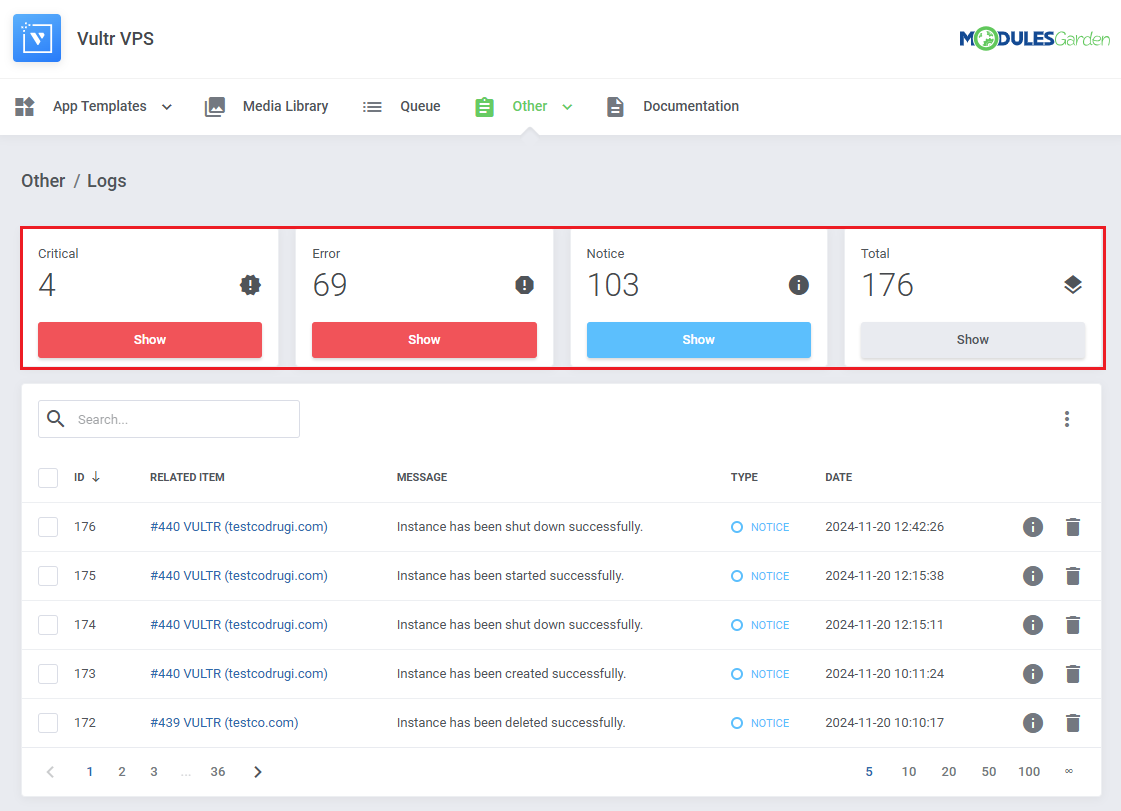
|
| You can see log details by clicking on the 'Details' button. Some logs might not include details. |
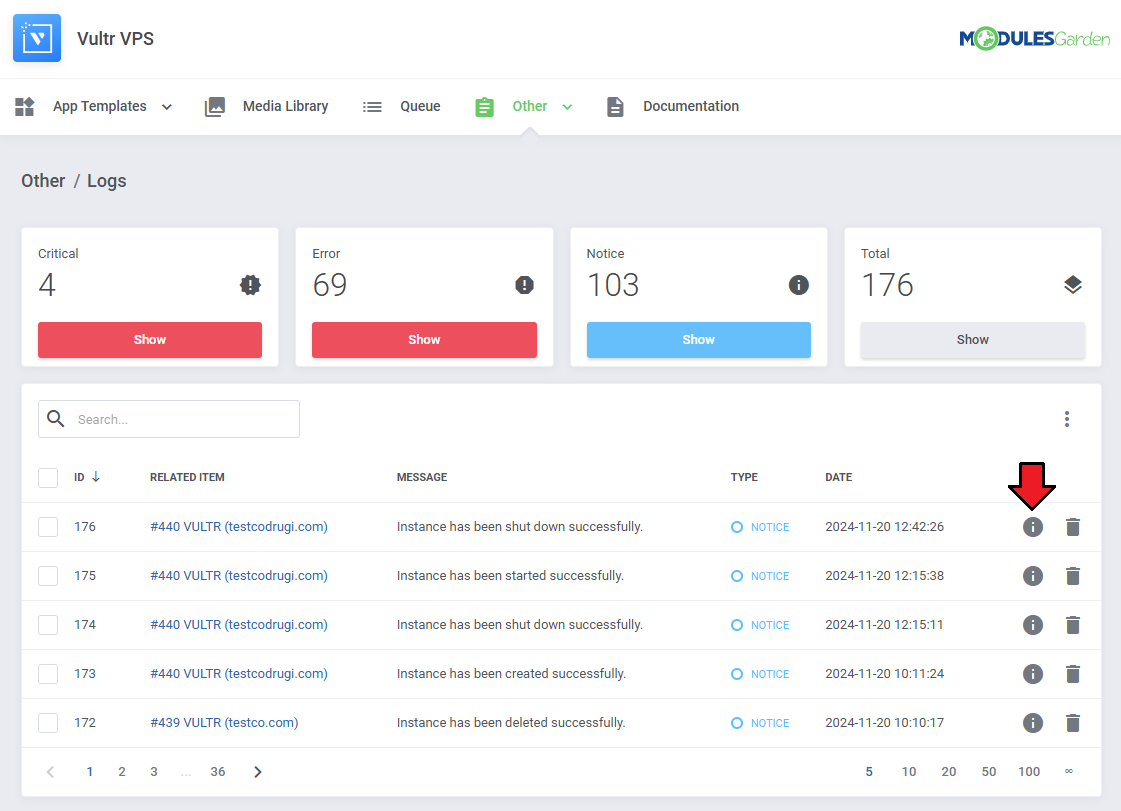
|
| Log details might look like this: |
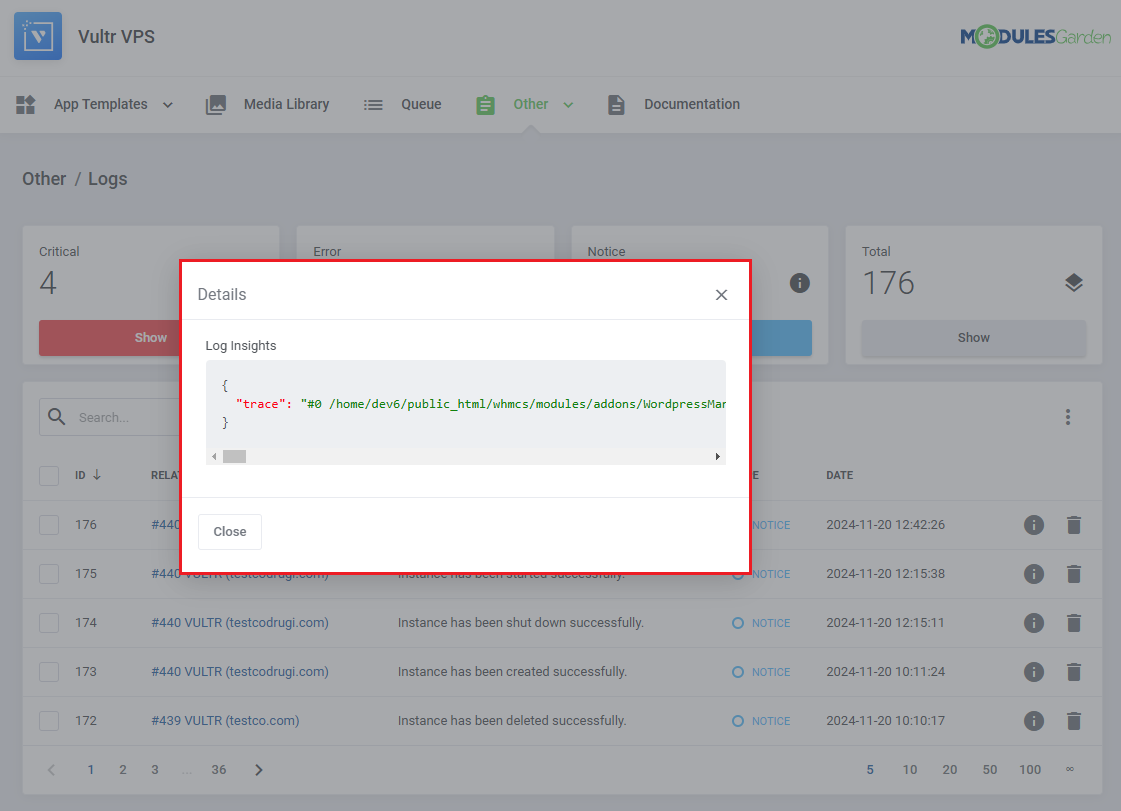
|
| You can delete logs either one by one or with the mass delete function. |
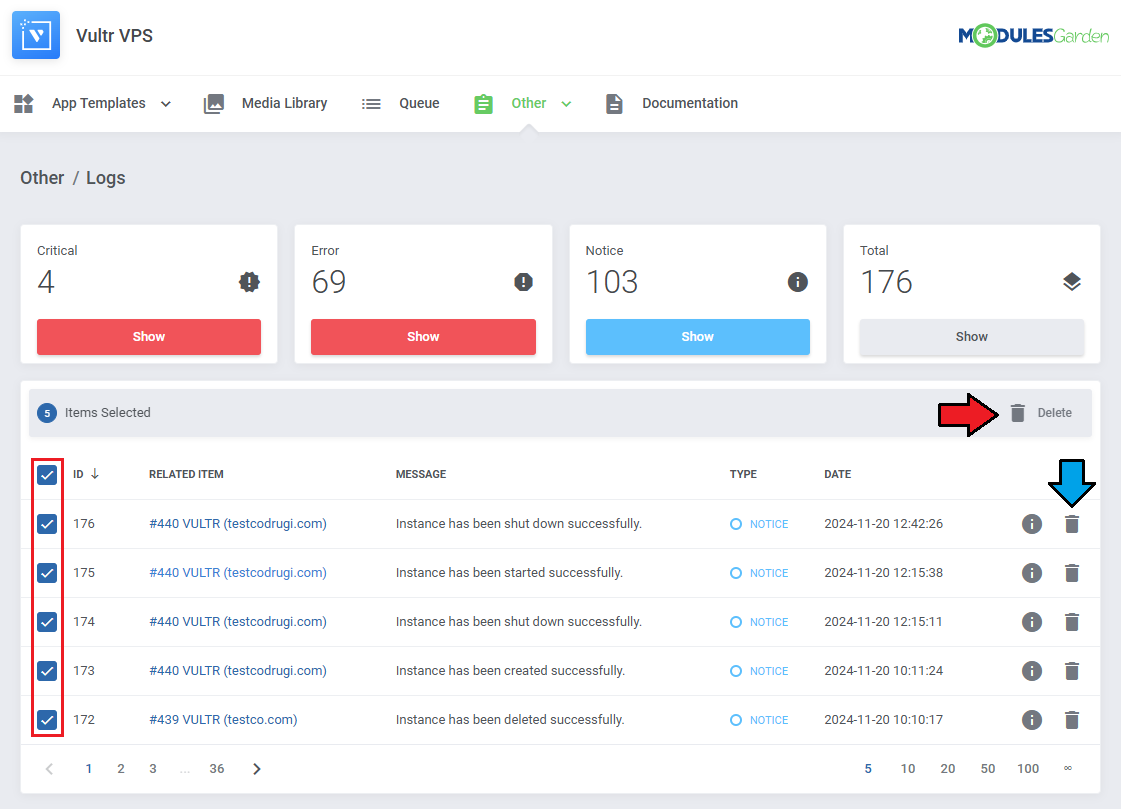
|
Additional actions include:
|
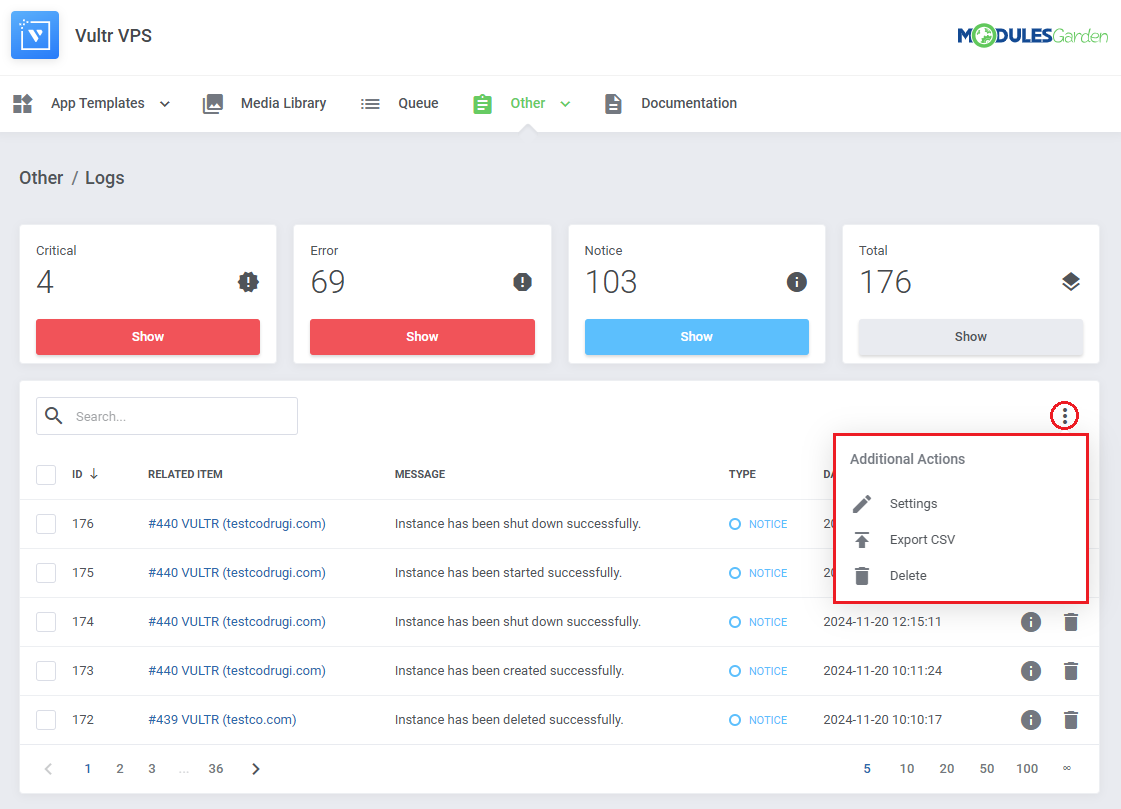
|
In the settings you may decide:
|
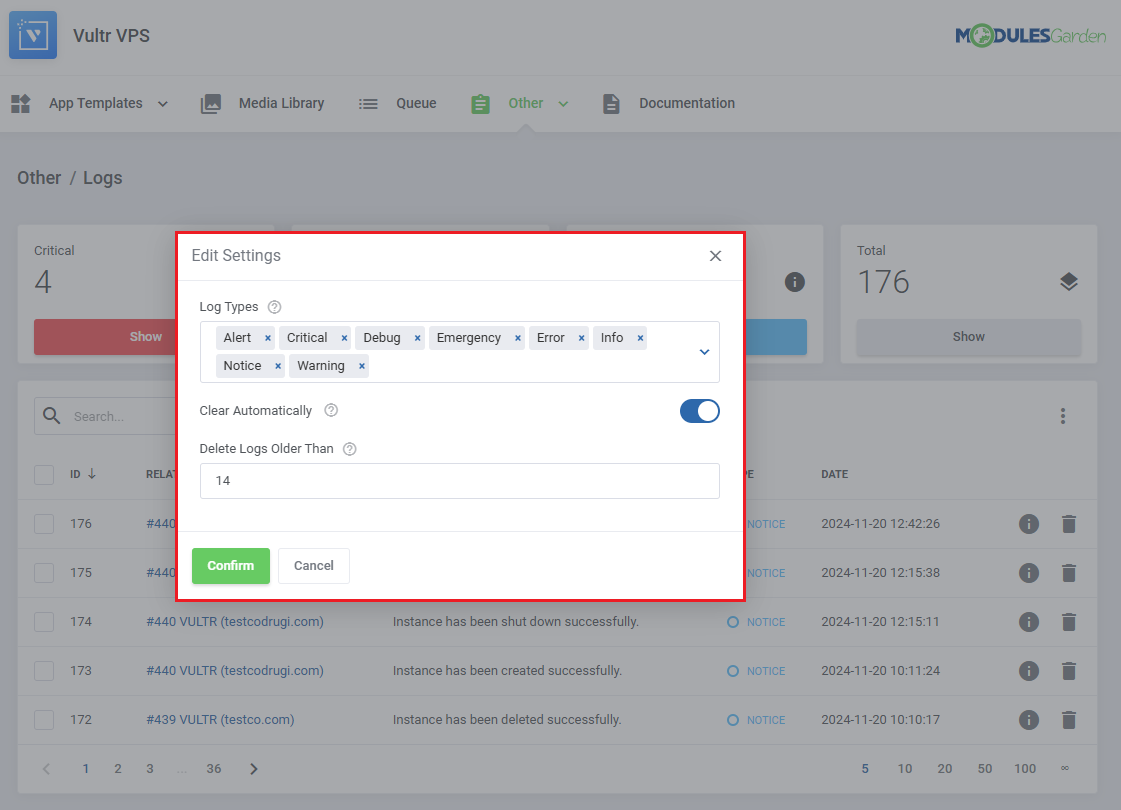
|
While exporting you will have to specify which logs to export:
|
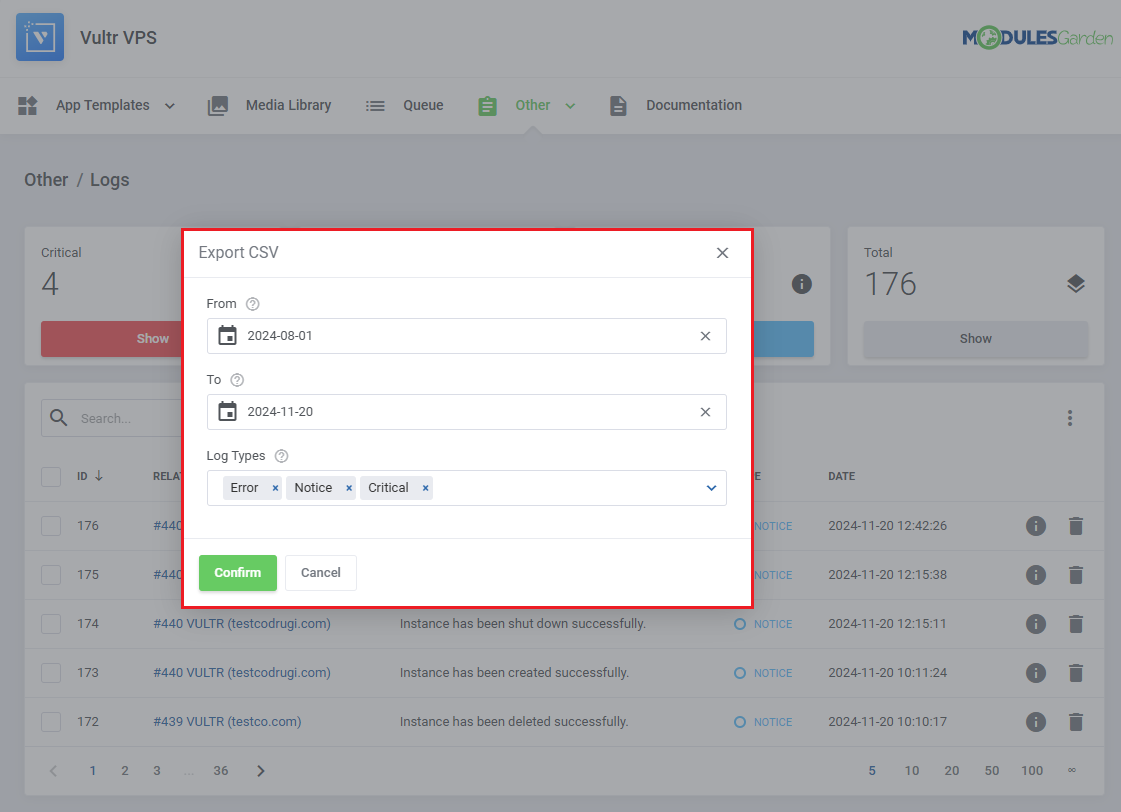
|
| You can also delete specific logs without finding them manually. Simply define:
|
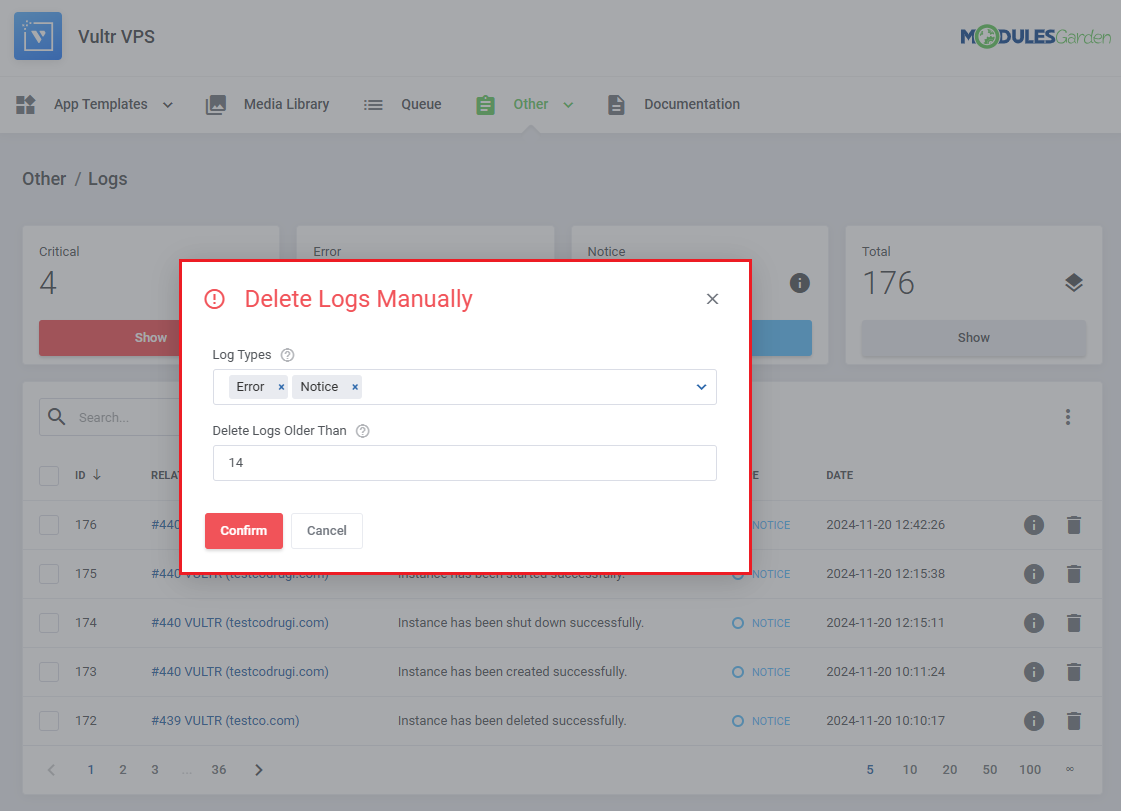
|